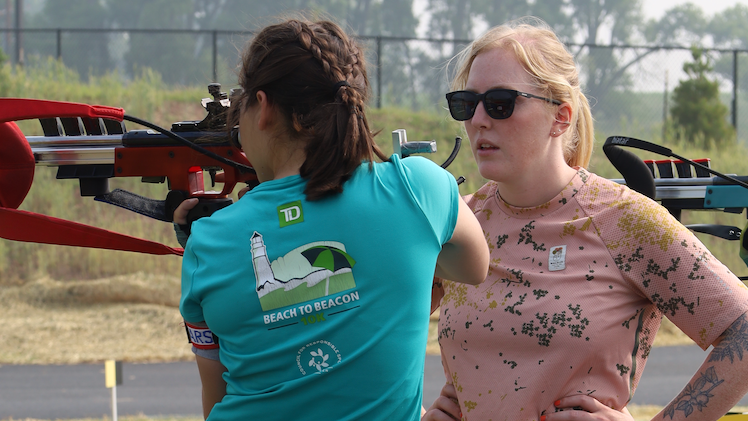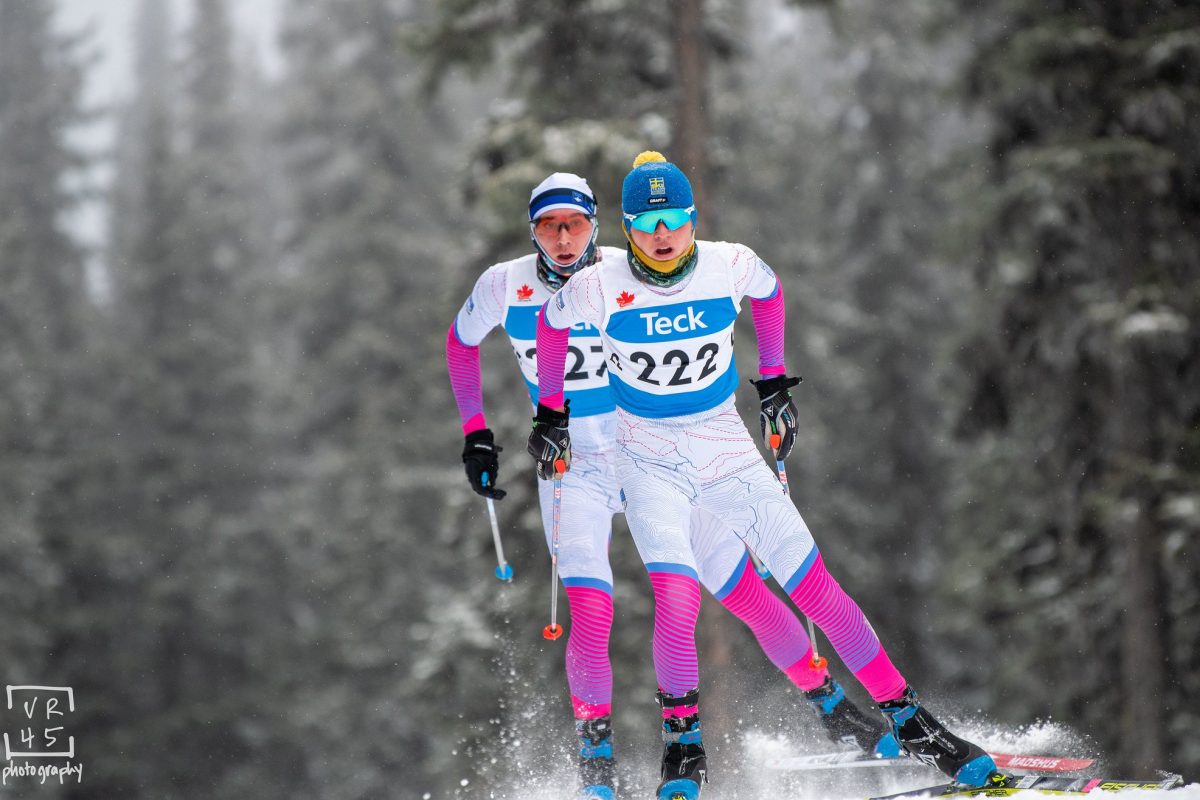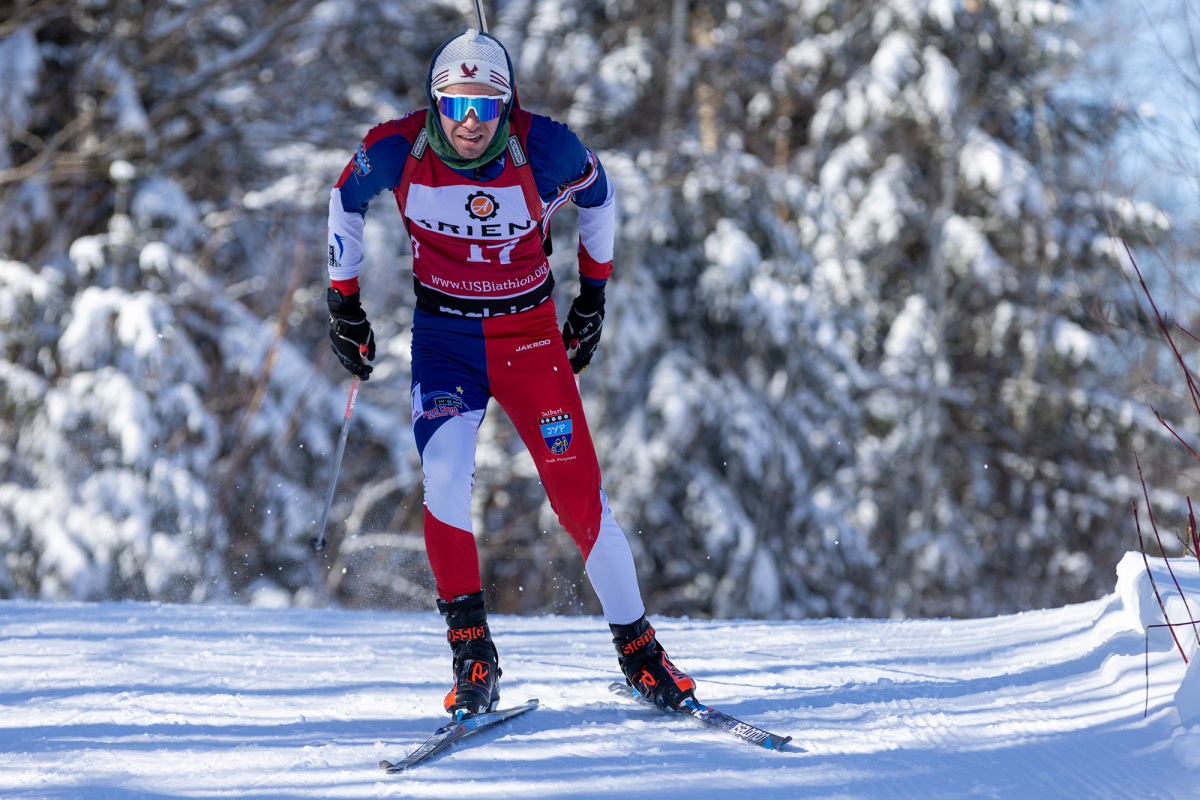
It’s a question that seems to come up every year: how fast, exactly, are biathletes?
Skiers imagine that their shooting cousins couldn’t possibly be as fast since they train differently, while biathletes maintain that they would do just fine on the cross country World Cup, thank you very much.
Over the years, there have been plenty of opportunities to answer that question. Norwegian biathlete Lars Berger won three gold medals at cross country World Championships between 2005 and 2007, and teammate Ole Einar Bjørndalen has stood on the World Cup podium five times due to his skiing prowess. In the U.S., biathletes have contested the Climb to the Castle rollerski race, with Laura Spector demolishing the women’s field in 2010 and Tim Burke losing a close finish to Kris Freeman in 2011.
While it’s pretty clear that the world’s best biathletes are quick on their skis, the question never gets old, and this weekend it will be posed once again.

Berger is using one of Norway’s extra quota spots at the World Cup opener in Sjusjøen, and he’s bringing company. For starters, his sister Tora, who is a World and Olympic champion, will go up against the likes of Justyna Kowalczyk and Marit Bjørgen.
The siblings have a reputation of being some of the strongest skiers on the biathlon circuit, and Tora in particular has over and over again demonstrated that when she decides to win, she has the willpower to inflict tremendous cardiovascular suffering upon herself. The Bergers’ success often depends on their shooting; while fast skiing can overcome missed shots, Lars has had more than a few truly horrendous shooting races. When he won a sprint in Ruhpolding, Germany, last season, it was only the third time he’d shot clean in a decade-long World Cup career. A more standard result for him is what happened later in the season in Oslo, when he had the fastest ski time, missed six shots – pretty much suicide on the World Cup – and still snuck into the top twenty.
Lars is now 32 years old and had knee surgery in March, so it’s unlikely that he’ll repeat his World Championships success from earlier in his career. His sister, however, might have better luck. She’s an unknown quantity, having competed in only three FIS races (the last one was in 2008). But with a proven ability to ski well in the early season – she has twice won races at the opening World Cup biathlon weekend – and a willingness to enter the pain cave that leaves her competitors looking over their shoulders even when she has a bad shooting day, the younger Berger could definitely acquit herself honorably.
However, she’s keeping her expectations reasonable, she told Norway’s TV2.
“This is new and exciting,” she said. “I am very grateful that I get the chance in the World Cup. I’m not sure where I stand in relation to cross-country specialists, but I guess that Bjørgen and Johaug are a notch faster than me.”
The two biathletes most likely to score top results are actually Emil Hegle Svendsen and Tarjei Bø, who battled back and forth for the overall World Cup title last year.

At 26 years of age, Svendsen has already won 24 World Cup races, including eight last year (not counting relays). Considering he’s only been on the World Cup since 2006, that’s pretty impressive stuff. While he seldom misses more than a single shot, Svendsen’s success comes from ski speed, too; in his eight 2011 victories, he had the field’s fastest ski time on three occasions and was never out of the top three.
One of those times, it was Bø who stole the show. After a debacle of a sprint race in Oslo, Bø started the pursuit in 44th position, more than two minutes behind the leader. Over 12.5 k, and despite a trip around the penalty loop, he managed to ski up to second place in front of a wildly excited home crowd.
It was symbolic of his season: Svendsen was supposed to be taking over the title of top Norwegian from Bjørndalen (well, probably not according to the king himself), but instead the younger Bø swept in and won the overall World Cup.
Bø, however, got sick during his team’s last altitude training camp in Italy, and is pretty sure that his early season results will suffer as a consequence.
Since Svendsen has been looking for revenge, Sjusjøen might be a good place to start. The two have a rivalry – a cute, friendly, Scandinavian rivalry – which has often seemed to propel them ever-faster. Svendsen has told the press that he believes he’s in the best shape of his life and ready beat Bø this season.
The World Cup cross country field doesn’t faze him either.
“I have not won in cross country,” he told the Norwegian television company NRK. “Clearly it is a dream to be able to compete well there. At my best, I can assert myself at the top, I know. To win in cross country, you need an excellent day. But at my best, I am among the very best in the world at skating.”
It doesn’t mean that he doesn’t respect his competition, though.
“I think Petter is dangerous,” Svendsen said to the newspaper Adressa. “He is smart and he is an inspiration, especially at what he does best. Everyone studies what he does. I try to learn from what he does, as well as his tactical skills.”
The last biathlete set to toe the start line in Sjusjøen has seen much less success than his teammates, but is actually the most accomplished skier among them. Ronny Hafsås has started a handful of World Cup races and even jumped in the 15 k at the Vancouver Olympics. Most importantly, he won both the individual and relay races at these openers in Beitostolen two years ago.
While he’s said that it makes sense that biathletes should get start rights at this weekend’s races, Hafsås seems to have learned a bit of humility since 2009, when he claimed that he could beat Petter Northug en route to winning the Olympics.
As a group, the quintet has the potential to make a splash in Sjusjøen, and just because skiing isn’t their primary sport doesn’t mean that they aren’t taking the races seriously.
“I am tremendously looking forward to getting that starting number on my chest,” Svendsen told TV2.



